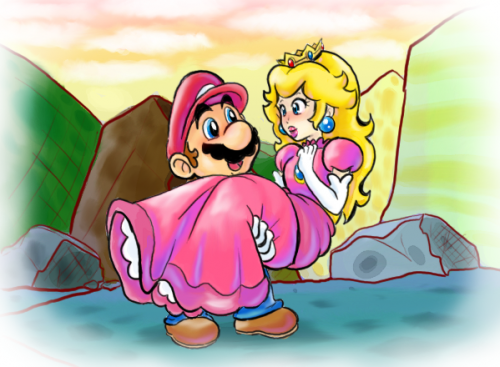As parents, we try to bring our kids up to be respectful, intelligent, compassionate human beings. Among other important lessons, we try to teach them that girls can be anything they want to be, and that they can kick ass in any field they choose. However, it has long been known that many kids’ toys don’t really help reinforce this message. For that matter, neither do many movies or even kids’ games. Take action flicks, for example (for obvious reasons). How often are chicks the ones kicking ass? Not often enough. In fact, most of the time they’re the ones behind all the trouble, either being saved by the (male) heroes or making their work more difficult than it should be. Things are no different in video games.
Women are grossly underrepresented in video games and in spite of making up 40% of the gaming population, they make up only 10% of the characters in the top 150 games. Further, even the roles they play are stereotypical. It is incredibly rare to find a woman as the main protagonist of a game. When women do appear in video games, it is often as a friend or girlfriend of the main (male) character, an oversexualised villain, mere eye candy or a damsel in distress. And this is not just about the games adults play. As fun as the original Super Mario Bros. was, you could only play Mario or Luigi, and the only woman around was Princess Peach who needed to be rescued from the castle. But why is this such a big deal? It’s just a game, right? Wrong. These games send out messages that are the opposite of the ones we try to give our kids, and unless things change, they could have a negative impact on the way young people behave.
Here are five important ways young people are affected by the gender imbalance in video games.
1. Girls can’t play as girls
One of the most obvious problems with the inability to play as a female character is that girls can never play as girls. This can affect the way young female players think about themselves.
2. It also sends out other not-so-subtle messages such as, only guys can be ‘heroes’
When playing a video game, the goal is often to complete an important task. And if it’s impossible to complete said task as a woman, what exactly is that teaching young players? When there’s important work to be done, only men and boys are up to the task. Certainly not the kind of stuff I say to my daughter at home.
3. Girls do not have worthy role models in video games
Even when women do appear in roles of substance, they are often dressed in extremely scanty clothes, with unrealistic bodies. Portraying women this way suggests that no matter what their skills or abilities, their ultimate worth is in their sex appeal. This message is harmful for both boys and girls, encouraging boys to objectify women and encouraging girls to strive for ‘perfect’ looks.
4. Girls don’t feel at home in the world of gaming
While the number of women playing video games has certainly increased, a large portion of this demographic represents women who play mobile games. The number of women playing video games without female characters is still rather low, and part of this reason is because they don’t feel welcome in a world where you have no choice but to assume a male avatar. This in turn prevents them from relating to the world of video games, a field that is often credited for inspiring an interest in science, technology, engineering and math. It is no secret that the percentage of women working in the video games industry is hardly representative of the percentage of women in the workforce, and this could be one important reason behind that.
5. Boys feel that girls don’t belong in the world of gaming
Women gamers have often reported being abused once they reveal their gender to their fellow players. While this behaviour is certainly not the norm, it is highly unacceptable and surprising. Well, maybe not surprising.
When a game does not allow players to play as girls, it gives the female target audience a feeling that perhaps the game developers hold the same opinion as a portion of their customers. I am sure they would love to be proved wrong.
As parents, we want our kids to grow up in a balanced world, irrespective of their gender. When our kids spend considerable time on these immersive games, we as adults in our society, are collectively obligated to provide well balanced environments for the young in our society, real or virtual. What do you think?
Written by George Schalter
Author Bio
George Schalter loves being a dad. He and his wife share the joys and responsibilities of bringing up their two children. As believers of good all round education, they spend a lot of time playing with their children and spending time outdoors. As George is the writer in the family, he blogs at Educational Kids Games.


